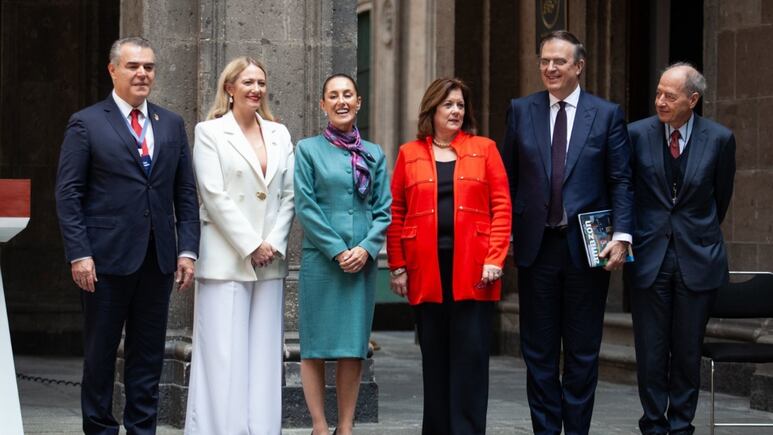Nearshoring: Traxión’s bet
At the recent US-Mexico CEO Dialogue, President Claudia Sheinbaum announced investments of more than 20 billion dollars

At the recent US-Mexico CEO Dialogue, President Claudia Sheinbaum announced investments of more than 20 billion dollars, reaffirming Mexico’s potential as an attractive destination for nearshoring. The discussion revolved around the challenges and opportunities in trade and investment matters, with a particular focus on the growing pressure to decarbonize supply chains.
Publicidad
In this context, Traxión, the leading mobility and logistics company in the country, stands out as a key player in capitalizing on these trends, thanks to its strategic focus on relocation and sustainability.
Nearshoring is generating a historic opportunity for Mexico, as trade tensions between the United States and China are driving many companies to relocate their operations in the country. Regions such as El Bajío and northern Mexico are already seeing exponential industrial growth, increasing the demand for efficient logistics solutions.
For its part, Traxión, with its expansion in people mobility and logistics, has been able to take advantage of this economic boost. According to Enrique Llaca, the company’s corporate commercial director, the company has registered double-digit growth in the last five years, highlighting the importance of strengthening infrastructure in these areas to ensure greater competitiveness.
Publicidad
But nearshoring is not just a phenomenon of industrial relocation. It is also an opportunity to rethink logistics operations from a sustainable perspective. In a panel at the BloombergNEF Forum, Llaca stressed that decarbonizing the transportation sector is now a priority for global companies looking to invest in Mexico.
Publicidad
Traxión responds to this demand by investing in clean technologies, including solar energy in its industrial warehouses and the incorporation of electric vehicles in its fleet. Although the challenges for the mass adoption of this type of vehicles in the freight transport sector are significant, the company is exploring alternatives such as compressed natural gas to mitigate its carbon footprint.
Traxión, with its focus on sustainability and its ability to adapt to the demands of a world in transition, demonstrates that it is possible to take advantage of the opportunities of nearshoring while addressing environmental challenges. This will not only benefit companies looking to invest in Mexico, but will also contribute to a more balanced and sustainable economic development for the country.
A STOPPING OF USED CAR IMPORTS?
All the dependencies of the second floor of the 4T will have to ensure that their progress is in line with the ideals of Claudia Sheinbaum, leader of the Executive, and one of the aspects that stands out of course is the Environmental Agreement that the Economy and Semarnat signed some time ago so that the entry of cargo and passenger vehicles up to 20 years old is allowed in the country, which does not add to the objectives to modernize the fleet for the benefit of both citizens and the environment, and it is that due to their long age the units do not have the most innovative devices to reduce emissions, nor to raise the levels of safety and efficiency, while their import is increasingly increasing with 32 thousand heavy “junk” units, projected for the end of 2024. Will the teams led by Marcelo Ebrard and Alicia Bárcena get to work?
Información publicada originalmente en El Heraldo de México
Publicidad
Publicidad
Más Leídas | Heraldo USA
EEUU quita visa americana a famoso cantante de corridos tumbados
Por Heraldo USA
Los hermanos Capetillo y la ‘rivalidad’ que tienen por la fama; ¿quién tiene más dinero?
Por Heraldo USA
¿Qué fue de Roxana Martínez y cómo se ve 'La Tetanic' en 2024?
Por Heraldo USA
Lavarse el cabello con detergente no es malo como creías (beneficios y remedios)
Por Heraldo USA
Publicidad









